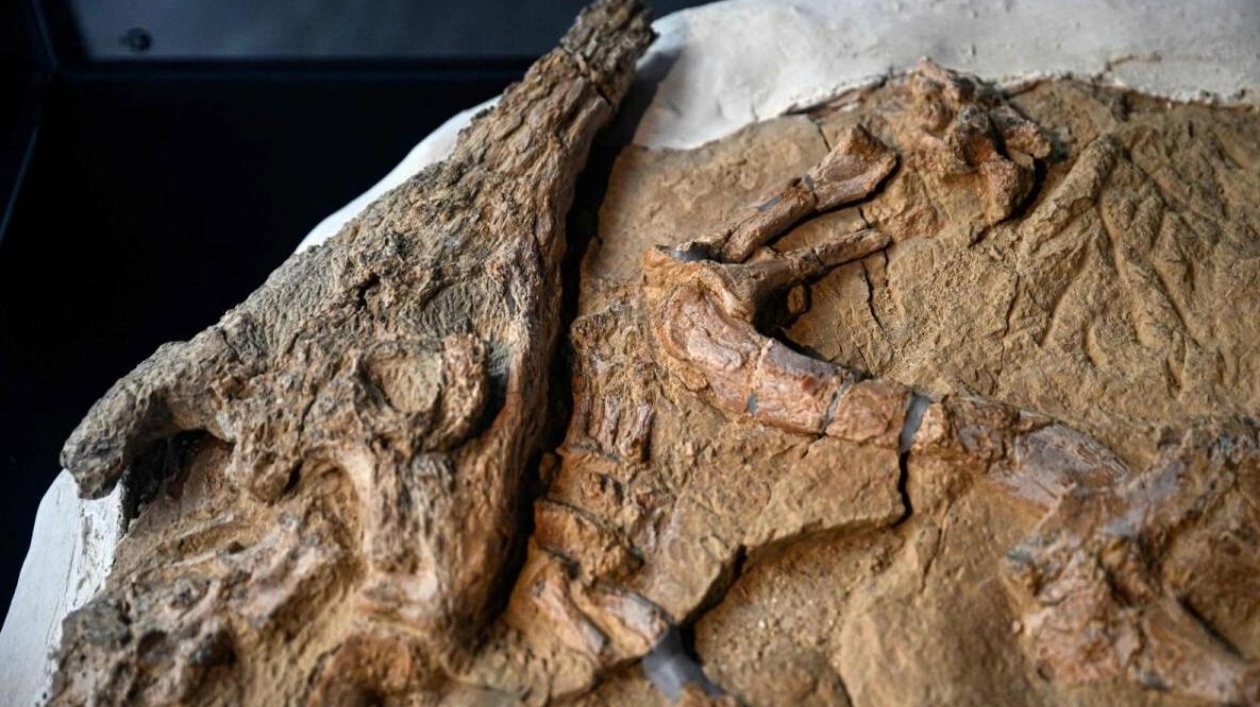A 10-million-year-old fossil of a juvenile Cenozoic crocodile from the genus Piscogavialis was unveiled in Lima on November 27, 2024. – AFP
Paleontologists revealed on Wednesday the fossil of a young marine crocodile dating back 10 to 12 million years, discovered in a Peruvian desert. The fossil of the gharial—or fish-eating—crocodile, approximately three meters long (nearly 10 feet), was found in late 2023 in pristine condition in Peru's Ocucaje desert, about 350 kilometers south of the capital Lima.
"This is the first time we've found a juvenile of this species, meaning it hadn't yet reached its full size. It died before that," vertebrate paleontologist Mario Gamarra explained during a press conference. The skull and jaws of these specimens differed from those of modern crocodiles and alligators, according to Gamarra, who led the reconstruction of the fossil.
"They had an elongated snout, and their diet was entirely piscivorous, relying on fish," Gamarra noted. "The closest living relative to this crocodile is the Indian gharial," he added. The discovery was a collaborative effort between Peru's Geological, Mining and Metallurgical Institute and the La Union school.
Peru's Ocucaje desert is renowned for its rich fossil deposits, including four-legged dwarf whales, dolphins, sharks, and other species from the Miocene period—spanning 5 to 23 million years ago—previously unearthed there.
Source link: https://www.khaleejtimes.com






